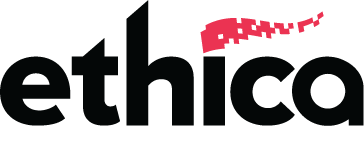The Ethica Small Business Framework
How Small is Small? Can you make money selling SDN to SMBs?
We think so.
Small businesses don’t like dealing with vendors who don’t like dealing with them. The same way casinos prefer whales to guppies, software vendors like assigning their reps to accounts that are bringing in big bucks and have massive potential for growth (the accounts, that is—land and expand and all that).
So where do vendors traditionally look for growth potential? The enterprise, of course. And with deep pockets and appetites for advanced features and functionality, it’s not surprising that the enterprise draws the most attention.
But that leaves smaller organizations, like yours, perhaps, in the lurch. Offerings are designed for more sophisticated customers; support is geared towards organizations with dedicated IT staff; don’t get us started on pricing. As more providers pursue the lucrative enterprise market, that leaves an opportunity to bring SDN technology to the small enterprise.
What is a Small Enterprise?
Let’s talk about small enterprise. For some additional context, most sources lump small and medium enterprises together, but we won’t be doing that here. Instead, we’ll explore different takes on what it means to be small, looking at organizations with fewer than 100 employees.
Small enterprises are important employers in Canada, comprising nearly 70% of employees, and more than 10,000 new small businesses (net of those that close) are created each year. (But you probably knew that already.) It’s a shame that so much of the market is so under-served, but thankfully Ethica is here to help with our CloudAccess software.
 CloudAccess Features
CloudAccess Features
SDN for Small Business
Nano Enterprise 0-9 employees
- Limited IT expertise and no dedicated IT person
- Cloud-first deployment, likely SaaS
- Price sensitive
- Single location (no multi-site WAN to manage)
Micro Enterprise 10-49 employees
- May have a dedicated IT staff, likely a single generalist
- May have multiple sites or a single larger site (marketing agency, law firm, owner with multiple restaurants)
- May have a server closet or even a colocation service beyond simple SaaS
- Still price sensitive but may have a dedicated IT budget
Mini Enterprise 50-99 employees
-
IT team, likely 1-3 FTE depending on the type of business
-
IT staff more likely to have advanced expertise/capabilities
-
Dedicated IT budget
-
Likely to own/operate infrastructure in the cloud or in a datacenter
These numbers are taken from the Key Small Business Statistics 2021 report, produced by Innovation, Science and Economic Development Canada. Worth noting, the Covid-19 Pandemic may have impacted the net new business creation numbers. The numbers reported here are from 2014-2018.
Small Business
Nano Enterprise
0-9 employees
We’ll start as most people do—very small! These organizations have a very small footprint. Think a sole proprietor or small restaurant or retail store. Maybe a boutique with an owner and a few part-time employees. This type of business is generally going to have a few defining characteristics:
- General lack of IT expertise. Smaller business owners are often not interested in technology beyond what it can do for their bottom line. This is entirely understandable—after all, you don’t get into the restaurant business or reselling vintage clothing because you have a secret desire to administer a network. There’s not dedicated IT person to talk to—the IT service provider is going to be very important to these business owners as the primary source of expertise.
- Things are going to be in SaaS. These businesses aren’t going to host an Exchange server on-premises; they’ll use Office 365. They’re not going to have a web server in their basement; expect them to use a service for that. They’ll be used to portals and log-in info but might not have an especially strong grounding in how these services work (conceptually) and what the alternatives are. The line between consumer and business technology blurs when we talk about the nano-enterprise.
- Price sensitivity is going to rule the day. It goes without saying, but small companies don’t have much in the way of wiggle room. Some are higher margin than others—a successful lawyer might be able to afford more than a fledgling restauranteur, for example—but as a general rule, cost is going to rule the day and the more efficient a service can be, the better.
- You’re probably going to be dealing with a single location. These operations don’t yet operate at a scale that necessitates a multi-site WAN. Connectivity needs will be confined to keeping that single site online.
Small Business
Micro Enterprise
10-49 employees
Moving beyond our exceptionally tiny friends, there’s mid-small or what we’re calling the “micro-enterprise.” There’s a lot of internal variation here—think about all the different organizations that could fit into this niche. We’re talking about a larger restaurant, a law firm, a walk-in clinic, or even a small chain of specialty stores. The micro-enterprise has a few defining characteristics as well:
- At this level you might start to see dedicated IT staff. This will probably be a single IT generalist responsible for anything that uses electricity. Depending on the nature of the business, they may have specialty software requirements (legal case management/ediscovery, electronic medical records, CAD) and the generalist might have some special expertise in these areas.
- These businesses may have multiple sites or a single larger site. There is definite opportunity here to take advantage of an advanced multi-site infrastructure.
- You can expect to encounter locally-hosted or collocated infrastructure beyond just SaaS. At this level you might find a server closet (or even a datacenter!) or a colocation.
- This type of organization generally recognizes the value of IT. A dedicated staff member often means a dedicated budget. Management might have some hang-ups about the role of IT or IT as a cost center (don’t we all), but at this size they will usually have a concept of the value that can be provided by dedicated tools for business. CloudAccess fits nicely here as a cost-effective solution designed for small businesses.
Small Business
Mini Enterprise
50-99 employees
Big fish in a small pond, “mini-enterprises” (a creative name, we know) are like their smaller cousins, but have a few characteristics that distinguish them. These might be larger law firms, professional services companies, local chains (retail, restaurants), or really any other kind of operation. There are quite a few organizations that operate at this size. If you fit into this category, you might have some of the following characteristics:
- There is almost certainly dedicated IT, maybe even more than one person. This will depend on the type of business, but many mini-enterprises will have an IT person with knowledge of point-of-sale systems in retail/restaurants or someone with knowledge of CAD in an engineering environment.
- IT staff are likely to have specific expertise, like the CAD and PoS examples cited above, but also in networking and other infrastructure areas. These folks are great resources for understanding and articulating the benefits of SDN solutions and can maintain the system for the long term.
- With dedicated staff comes a dedicated budget. Everyone spends money on IT, but these organizations are likely to give their IT leadership the ability and flexibility to spend money (not hugely significant amounts, but money nonetheless) on things they need to keep the busines running.
- These organizations might have a datacenter or cloud infrastructure footprint, or even some legacy technology (unless they grew very quickly). The question, then, is how can that technology stack be optimized to grow and scale with the company?
Conclusion
There you have it! The small business segment can be sliced up any number of ways, but we think this way makes the most sense. Check out our series of posts where we dive into each of these sub-groups, articulating in more detail who they are, what their common challenges are and how CloudAccess can help.
Let us show you what we do
Book a Demonstration
Learn More
"*" indicates required fields



